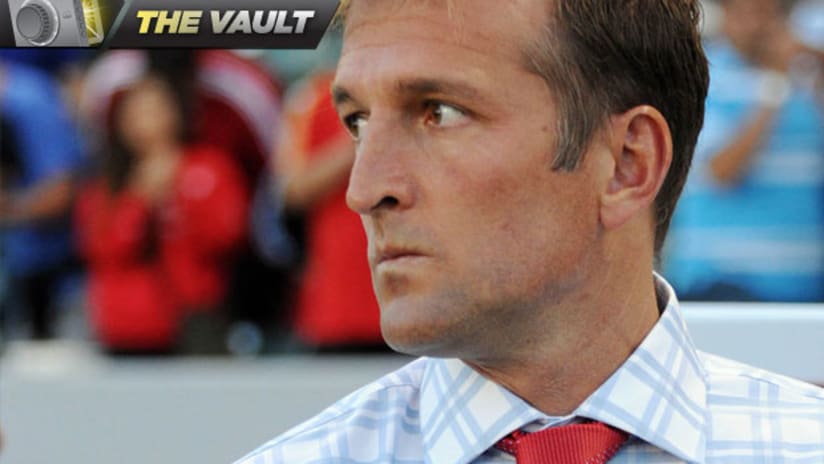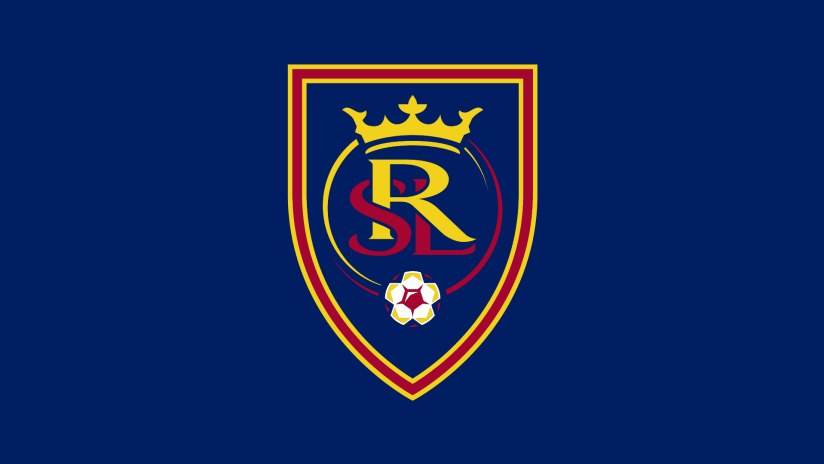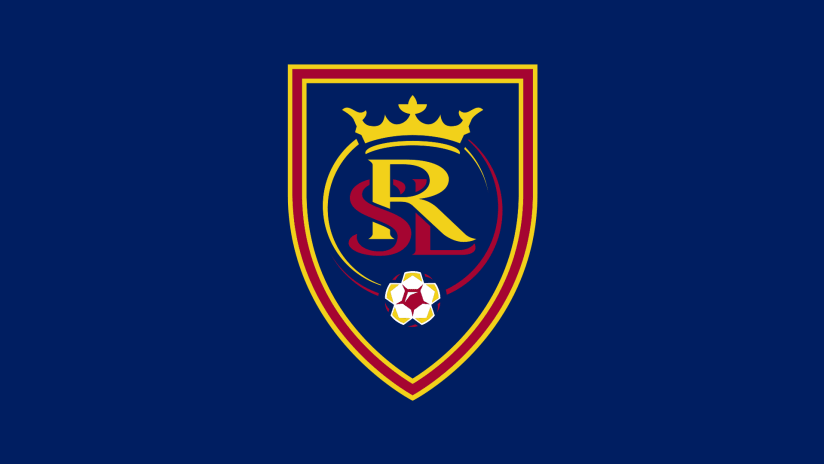With the MLS Cup final in Kansas City just days away, MLSsoccer.com is offering up a glimpse into the vault of previous longform articles on the site that examine the biggest names and best storylines heading into this year's matchup between Sporting Kansas City and Real Salt Lake.
Our latest installment is senior editor Nick Firchau's look at how Jason Kreis took the reins as the head coach of Real Salt Lake with mixed emotions back in 2007, and quickly built the team into something he could relate to: hard-working, relentless and under-appreciated. This article originally ran on Oct. 27, 2010.
SANDY, Utah – There was a point in 2007 when Jason Kreis finally just gave up. And perhaps for the first time in a career built on a compulsive work ethic and a manic drive to prove himself, he quit.
Kreis was 34 at the time, staring down the twilight of his career against a Utah backdrop he never wanted to see. He spent too many nights driving on suburban Salt Lake City streets, cursing the old team that had wronged him, and too many days wondering when his new team would finally play up to the impossibly high standards he’d always set for himself.
Real Salt Lake were a mess of a franchise then, and the few still employed there from that era won’t hide from it. They lost an MLS-worst 35 games over their first two seasons in 2005 and '06, wasted their first-ever draft pick on Nickolas Besagno instead of Brad Guzan or Michael Parkhurst and happily opened the bank to trade for Freddy Adu, perhaps the most curiously promising and simultaneously toxic player in the league.
The funding for a new soccer-specific stadium hit a snag. Twice. Owner Dave Checketts threatened to sell the team. Chivas USA made the playoffs in their second year, and Real Salt Lake started to look less and less like a career destination and more and more like a death blow.
And whether he liked it or not, Kreis was stuck with it. Shipped from Dallas to Real Salt Lake following the 2004 season, he was, as he says about many twists and turns in his life, hard done. He wanted to retire and maybe coach someday in Dallas, and he certainly never dreamed he’d be tasked with somehow playing for a rudderless franchise hailing from no man’s land.
“I just reached a breaking point,” Kreis said. “I would go home from the games and I was miserable, I was miserable for my wife. Enough was enough. I couldn’t be part of a losing group anymore.”
In May 2007, he quit. He couldn’t play anymore. Not for this team, anyway. Things had to change.
So Jason Kreis went ahead and became the coach.
*
Getting the job, however, took some convincing. Checketts, a former NBA executive who’d seen stars struggle in coaching roles, initially thought Kreis would be better suited as the general manager when his playing days were through.
But Kreis had a different idea. He insisted that while success came easily to those individuals and they struggled to teach lesser players, the success he’d enjoyed was a result not of natural talent but of a lifetime of hard work.
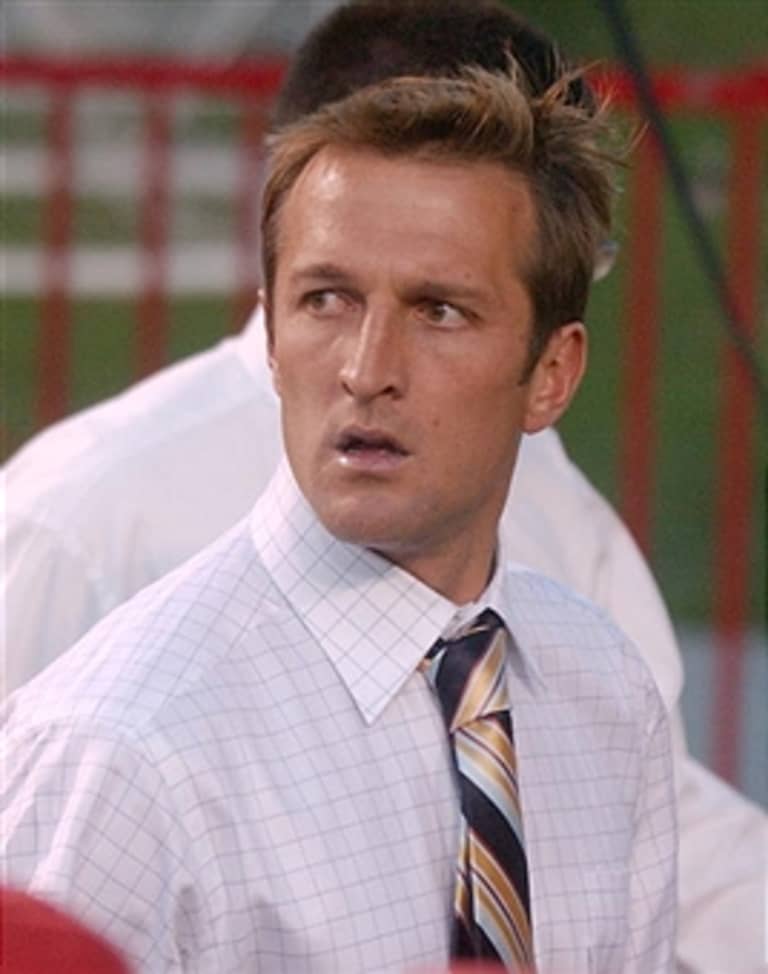
Jason Kreis was the youngest head coach in MLS history when he took over at Real Salt Lake in 2007 at just 34 years old. He led them to the playoffs in his first full season on the job in 2008, and to the MLS Cup title in 2009. (Getty Images)
“I had no natural ability, in my opinion,” Kreis said. “Nothing came naturally to me. I’d had to work hard, so I would have a lot of respect for players that had a ways to go and needed to learn.
“I think [Checketts] came into that thinking, ‘I want him to be my GM,’ and I think he left that going, ‘I think he might be a really good coach.’”
The initial plan called for Kreis to retire and become an assistant to then-coach John Ellinger, who piloted the team during their first two dismal seasons in the league. But when the team stumbled out of the blocks and went winless in its first four games to open 2007, the franchise had seen enough.
Kreis’ world went into overdrive. Dissatisfied as a player and eager for a new opportunity, his playing days ended on May 3, 2007, the same day he stunningly became the youngest coach in MLS history.
- THE VAULT: How RSL went young, and still found success
He admits now that he probably wasn’t entirely equipped to coach the team, but he knew the kinds of players he wanted to lead. The RSL front office and its new head coach promptly set out on one of the greatest roster overhauls in league history, fleecing the rest of MLS for its undervalued talent and scouring the international ranks for players who fit the mold of what the team one day would be.
Did they fight? Did they work hard? Could they learn? If the answers were no, Kreis sent them packing in favor guys who could. A wealth of individual talent wasn’t irrelevant, but a lack of it wasn’t irreversible.
“There’s a difference between someone who demands the same level of commitment and the same level of ability,” defender Chris Wingert said. “You can tell when someone is a hard worker. And that’s exactly what Jason is, and that’s what he expects.”
RSL won just six games under Kreis during the 2007 season, but before the final whistle, they’d added the likes of Wingert, Kyle Beckerman, Javier Morales and Fabian Espindola. They’d also happily parted ways with Adu and Jeff Cunningham, two individual superstars who Kreis says he personally targeted for removal as far back as 2006.
Kreis wasn’t ruthless, but he was methodical and deliberate. His wife didn’t speak to him for a week when he traded his best friend and captain Chris Klein to the Galaxy, but the reward spoke for itself – a 22-year-old kid named Robbie Findley joined camp less than two months after Kreis got the job, and he was a starter in the World Cup three years later.
The team added Nat Borchers, Robbie Russell, Jamison Olave and Will Johnson in 2008, and reached the Western Conference final. They added Ned Grabavoy in 2009 and won the MLS Cup.
“We didn’t know if we were getting the best players in the world,” Kreis said, “but we wanted to see if we could make them better than they were when we got them.”
They were all together with Kreis at the helm when the 2010 postseason began, and they were absolutely the last team anyone else wants to play.
*
Part of what makes Kreis so successful as Real Salt Lake’s head coach is what he perceives as a lifetime of being short-changed and an ensuing obsessive quest for respect.
He’s quick to tell a story of being invited to a select team camp and told he made the regional traveling team as a 12-year-old boy in Omaha, Neb. He found out later that he’d missed the tournament because no one followed through to tell him where to show up.
“There was a deep-seeded, emotional idea there for Jason,” Real Salt Lake GM Garth Lagerwey said of his longtime friend. “One of, ‘If you’re not going to open a door, I’m going to kick it in.’”
Kreis eventually thrived at Duke and reached MLS during its inaugural year in 1996, scoring 13 goals and adding five assists in 29 starts for the Dallas Burn. But his playing time was scaled back in 1997 upon the arrival of little-known Argentine Daniel Peinado, a prime example of what Kreis and other players believed was the league’s over-emphasis on showcasing international players instead of Americans.
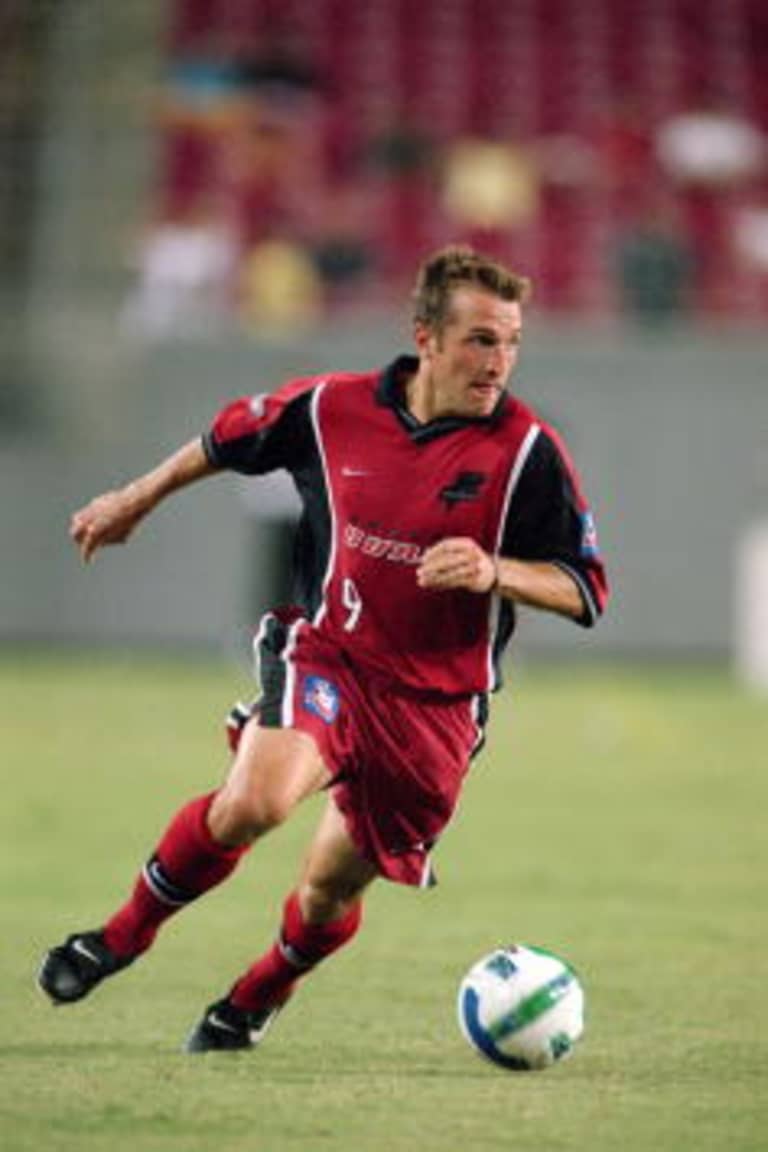
Kreis became the first player in league history to notch 15 goals and 15 assists in a single season in 1999, when he won the league MVP. The work ethic that got him there, he admits, is "borderline obsessive-compulsive.” (Getty Images)
Peinado flamed out after one season and is perhaps best known for committing a league-record nine fouls in a single half, but his short tenure left an indelible impression on Kreis. Feeling scorned and suddenly invested in what Lagerwey dubbed a “maniacal obsession with work,” Kreis was named the first American-born MVP in 1999 and became the first player in league history to score 15 goals and add 15 assists in a single season.
But he was unceremoniously dumped after the 2004 season, deemed expendable after he was hampered by knee injuries late in his nine-year tenure with the club. He was the all-time leading scorer in franchise history and perhaps the most prolific American forward the league had seen by the end of 2004, but he was effectively traded for nothing. All Dallas wanted in return were future considerations.
Kreis admits that perhaps he’s twisted some aspects of his past to fit his own narrative, one of an overlooked and underappreciated star. He’s short-changed his own natural talent for years, insisting instead that it’s been relentless hard work coupled with an almost manic personality that chiseled out his career.
As a pro, he ate the same breakfast, every game day. He ate the same lunch, too, always at specified times. He was meticulous and superstitious, and unapologetic about it.
A former psychology major and a pre-med student while at Duke, his self-diagnosis is “borderline obsessive-compulsive.” He’s missed parties and proms for soccer, and his social life has suffered. When he skipped the senior homecoming dance to play in a soccer tournament, he left his high school sweetheart and the woman he would one day marry to dance with another guy.
Kreis, of course, kept the girl. He held onto his meticulous and dogmatic attention to detail, too, but it’s served him remarkably well in his three-plus years on the job at Real Salt Lake. In fact, it’s probably one of the few reasons he’s made it through this season at all.
Real Salt Lake played a total of 16 games from Aug. 14 through the season finale last Saturday in Colorado, carefully balancing the home stretch of the league schedule and six games in the CONCACAF Champions League.
Kreis and his coaching staff were deliberate in every move and roster selection, often times selecting lineups as many as five games in advance. Every single result mattered and each match carried ramifications for Kreis, making the late-night roster decisions perhaps even more important than what actually played out on the field.
The team finished a combined 9-1-6 overall, with the only loss coming in a torrential downpour against Cruz Azul in Mexico City on Aug. 25. They became the first MLS team to win a group in the CCL’s short history, and threatened to take the Supporters’ Shield until the final day of the regular season.
“He always tells us to trust him, even when we don’t think it’s the right decision,” said goalkeeper Nick Rimando, one of just two holdovers from the beginning of 2007, along with Andy Williams. “But you know, nine out of 10 times, it’s the right decision.”
Said Beckerman: “I know a lot of guys in this league who go into a game and they feel like they’re drawing cards out of a hat. One says win, one says lose, one says draw. That’s not the case here. We expect to win.”
Kreis works in an industry defined by results, he knows that. So as dogged as a he might be about some of his strategies, he can’t afford to be inflexible if he’s not winning. He hasn’t lost too often in the last 13 months of his coaching career (RSL have lost a total of eight of their last MLS 38 matches dating back to Oct. 2009), but the one that sticks for him and his staff was a 2-0 loss on July 17 to their Western Conference semifinals opponent, FC Dallas.
Kreis and the coaching staff settled on their “diamond” midfield formation last September and eventually rode it to the MLS title, but surprisingly deviated from it during a summertime loss on the road at Pizza Hut Park. They instead opted for a 4-5-1 formation and almost sheepishly admitted what a blunder it was afterwards, and they haven’t lost in their last 15 league matches after switching back.
“I’ve always been gung-ho and driven towards what I thought was right, but at the end of the day, it’s about the results,” Kreis said. “It’s all about results. If you have those, you know what you’re doing is right.”
The one result missing from a playing career adorned with individual accolades for Kreis was an MLS title. During the acceptance speech for his 1999 MVP award, he said he would have given it back for a chance to play in the final with D.C. United, and he says now the 100 career goals pale in comparison to what one individual title would have meant.
“That’s probably why it’s so important to me here,” Kreis said. “I see it as so important for these guys, and they probably don’t even know it yet. But to retire without having ever won one … that’s a choker. That one sticks in your gut.”
Kreis finally earned his first MLS Cup last season, but it certainly doesn’t seem to be enough. He’s played the underdog card in Real Salt Lake for years now, galvanizing a team of castoffs and hard workers to play better and smarter here than with any other club in their past.
It’s a mantra now with Real Salt Lake, a rallying cry for respect passed directly from the top down. Whether all the neglect and hard luck are real or simply fabrications of Kreis’ psyche, though, doesn’t seem to matter. He’s carved a remarkably accomplished career from a lifetime spent proving himself, and he’s turned a franchise with a spotty history into perhaps the preeminent club of the next decade.
“Who knows,” Kreis said, sitting in a coach’s office where he never expected to be, but surrounded by players he always wanted to lead. “Maybe it was meant to be.”

